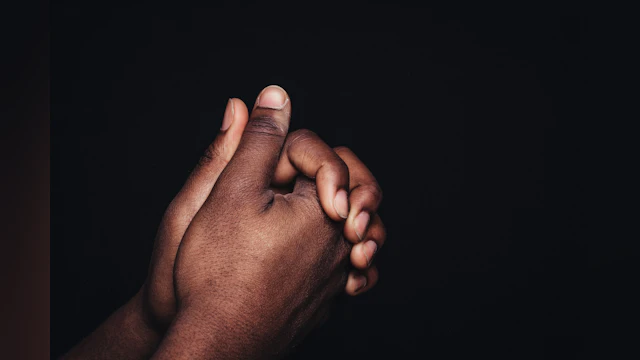NEW YORK (August 8, 2022) – The American Foundation for Suicide Prevention (AFSP), the nation’s largest suicide prevention organization, is offering Soul Shop™ for Black Churches, a new training to help faith leaders, including church staff, pastors, faith-based clinicians and other lay leaders in Black and African-American churches minister to those in their congregations who may be struggling or who have been impacted by suicide.
The creation of this training was driven by AFSP’s commitment to health equity for diverse communities and addressing the rising rate of suicide among Black people. Though the suicide rate for the overall population in the U.S. decreased by 3% from 2019 to 2020, it increased for minority communities. Specifically for non-Hispanic Black populations, it increased by 3.5% according to the CDC.
“I personally know how important it is to have support and guidance during one of the most difficult experiences anyone can ever face as a human being,” said Phillip Tyler, volunteer and board chair for the AFSP Washington State chapter. “I lost my son, Devon, to suicide and know that many like me turn to our religious institutions during these trying times. It’s very meaningful for me to be in the position to equip church leaders with the understanding and tools that will help them support and care for people like me who have faced suicide.” Phillip is also part of the first cohort of trainers for the workshop.
This one-day workshop equips leaders who are on the front lines of community mental health crises to minister to those impacted by all facets of suicide. Soul Shop™ for Black Churches focuses on:
- The role of societal discrimination in affecting suicide risk among Black and brown young people
- The prominent role of the church in Black communities and how it can be leveraged for a positive impact related to suicide prevention and loss and healing
- Statistics, trends and rates of suicide among people of color
- Challenges of and ideas for engaging issues of mental health and suicide in Black churches
“In my experience, the Black Church has always been the gateway to the Black community, and as such, it has always been revered as a place of hope and healing,” noted Victor Armstrong, Soul Shop™ Movement’s director for Black Churches and AFSP North Carolina board member. “Soul Shop is an excellent resource for giving clergy and other faith leaders effective tools, to help them talk with their congregants about the desperation that accompanies suicide and the impact it can have on those touched by suicide.”
After the training, participants will be able to address issues related to mental health and suicide prevention as a natural aspect of their life and work. “It’s our intention that these workshops will lead to an ongoing, strategic effort to shift the way that faith leaders support community members who may be struggling, as well as knowing how to respond after suicide loss,” said AFSP Chief Medical Officer Dr. Christine Yu Moutier.
The first team of trainers implementing the program is composed of AFSP volunteers, staff, and church leaders. Soul Shop™ Movement has already started training church leaders in New Castle, PA; Buffalo, NY and Charlotte, NC.
"The church has historically played a crucial role in Black communities and been at the center of much civic engagement during times of social tension and crisis,” said Soul Shop™ Movement Executive Director Michelle Snyder. “As we face this public health issue of suicide, we believe that with the right tools, resources and insights, once again, the Black Church can play an essential role to save lives and bring hope to those impacted by desperation.”
To bring this program to a community or church, learn more here.
In November 2016, AFSP partnered with Soul Shop™ Movement to hold Soul Shop™ for Leaders, a training for religious institutions to familiarize participants with the incidence and impact of suicide on their faith communities, empowering them to address issues related to suicide.
As a health organization, AFSP is dedicated to equity in addressing the mental health and suicide prevention needs among underserved populations. We are committed to a process of change knowing that long-term, sustained efforts are needed to improve access to culturally informed, evidence-based quality mental health care.
We stimulate and fund research related to the Black community and other underrepresented groups, health disparities and inequities with the support of AFSP’s Scientific Council. For the 2020-2022 research grant cycles, the Scientific Council has prioritized suicide prevention research related to underrepresented communities, health and mental health disparities and inequities, as well as researchers from underrepresented backgrounds who are proposing research focused on understanding and preventing suicide.
See other mental health and suicide prevention resources specific to the Black community here.
###
The American Foundation for Suicide Prevention is dedicated to saving lives and bringing hope to those affected by suicide, including those who have had a loss. AFSP creates a culture that’s smart about mental health through education and community programs, develops suicide prevention through research and advocacy, and provides support for those affected by suicide. Led by CEO Robert Gebbia and headquartered in New York, with an Advocacy office in Washington, DC, AFSP has local chapters in all 50 states with programs and events nationwide. Learn more about AFSP in its latest Annual Report, and join the conversation on suicide prevention by following AFSP on Facebook, Twitter, Instagram, and YouTube.
Please direct inquiries to María de los Ángeles Corral, VP of Public Relations, 917-439-2946, [email protected]
